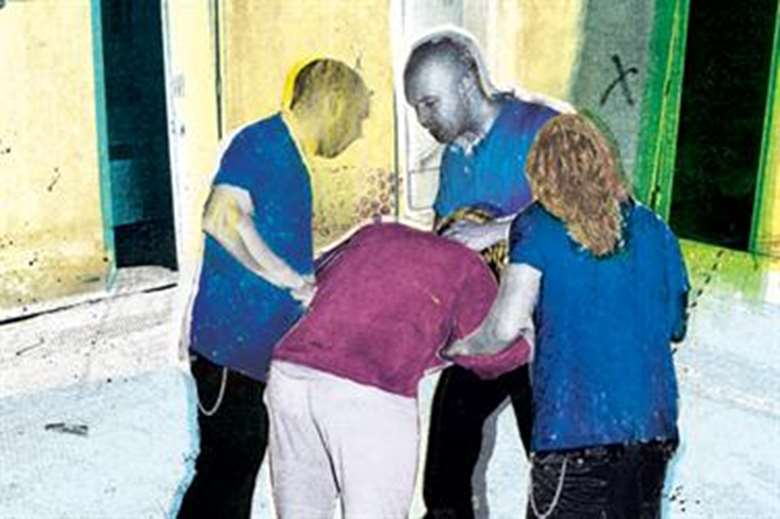Medway STC staff still using painful restraint, inspection finds
Joanne Parkes
Wednesday, January 30, 2019
?A secure training centre, criticised for its use of excessive force on young inmates, has continued to inappropriately use pain-inducing physical restraint, an inspection has found.

Staff at Medway Secure Training Centre (STC) must immediately stop using "force and restraint" to deal with "children's passive non-compliance", according to a joint report published this week by the Care Quality Commission, HM Inspectorate of Prisons, and Ofsted.
The report raises concerns that staff "continue to deliberately use techniques that inflict pain on children in order to gain compliance".
Children's rights charity Article 39 described the ongoing use as "unbelievable and incredibly upsetting" and called for Medway to be closed down.
Despite the inspectorate's findings in relation to restraint, standards at Medway are better in a number of respects, and the report found the STC "requires improvement to be good".
The pilot inspection, which took place in December last year, is the first to follow a toughened inspection regime for England's three STCs, in response to growing concerns around violence and the safety of young people.
If successful, the new system will come into force from April 2019.
Medway has been under close scrutiny following a BBC Panorama investigation into use of excessive force in January 2016.
Two "inadequate" inspection judgments followed in June of that year and March 2017, with another rating in March last year of "requires improvement".
In December 2017, the Ministry of Justice (MoJ) said it would review the use of pain-inducing restraint on children being escorted to secure children's homes and STCs.
In June last year, this was expanded to include a fuller assessment of such techniques across the youth secure estate, with Youth Justice Board chair Charlie Taylor appointed to lead this wider review last October.
A review by Medway Safeguarding Children Board published this month said techniques "appeared to enable an environment of increased risk of abuse to children".
Describing the painful restraints, it states: "These techniques were used on 10 occasions over the previous six months.
"Inflicting pain was sometimes ineffective, and inspectors saw one occasion where an act of passive non-compliance resulted in a prolonged restraint and a pain-inducing technique was used.
"Deliberately inflicting pain significantly compromises children's safety and welfare."
It concluded that there had been approximately 330 incidents involving force in the previous six months and some of them had not been "quality assured", undermining governance.
More than 80 per cent of the incidents involving force featured the use of minimising and managing physical restraint (MMPR) holds.
"The recent recruitment of MMPR co-ordinators means that oversight of
the use of force has improved since the last inspection," the report continues.
"However, there are 90 incidents dating back three months that have not been quality assured.
"This lack of timely oversight undermines other aspects of governance, including the weekly restraint minimisation meetings (RMM).
"In a sample of one week in September 2018, inspectors found four incidents that should have been reviewed during the RMM but had not been.
"This means that senior managers cannot be assured that the use of force is always proportionate, or necessary, in order to prevent harm to children."
Carolyne Willow, director of children's rights charity Article 39, said that the use of pain-inducing restraint for non-compliance had been found to be a breach of human rights.
Willow said: "It is unbelievable and incredibly upsetting that unlawful restraint can be still happening in this secure training centre.
"That officers felt able to deliberately inflict severe pain on a child in breach of the law in front of inspectors points to systemic child protection failures.
"Last week's serious case review showed that G4S and external local and national agencies failed to protect children from the abuse which we all saw on our television screens.
"That was three years ago. If any child prison was to have been reformed and made safe for children, it would have been this one.
"Ministers must recognise that children have suffered enough, and close down this institution once and for all."
The Ministry of Justice said: "The safety of all young people in custody is our absolute priority and we have made significant improvements at Medway since taking the site back into public control in July 2016.
"This report recognises that standards at Medway continue to improve, including oversight of the use of force, safeguarding and the quality of teaching and education.
"We are fundamentally reforming youth custody, increasing frontline staff in public sector YOIs by 20%, improving training for officers working with young people, and we recently announced a £5 million investment which will see a new Secure School established at Medway."




